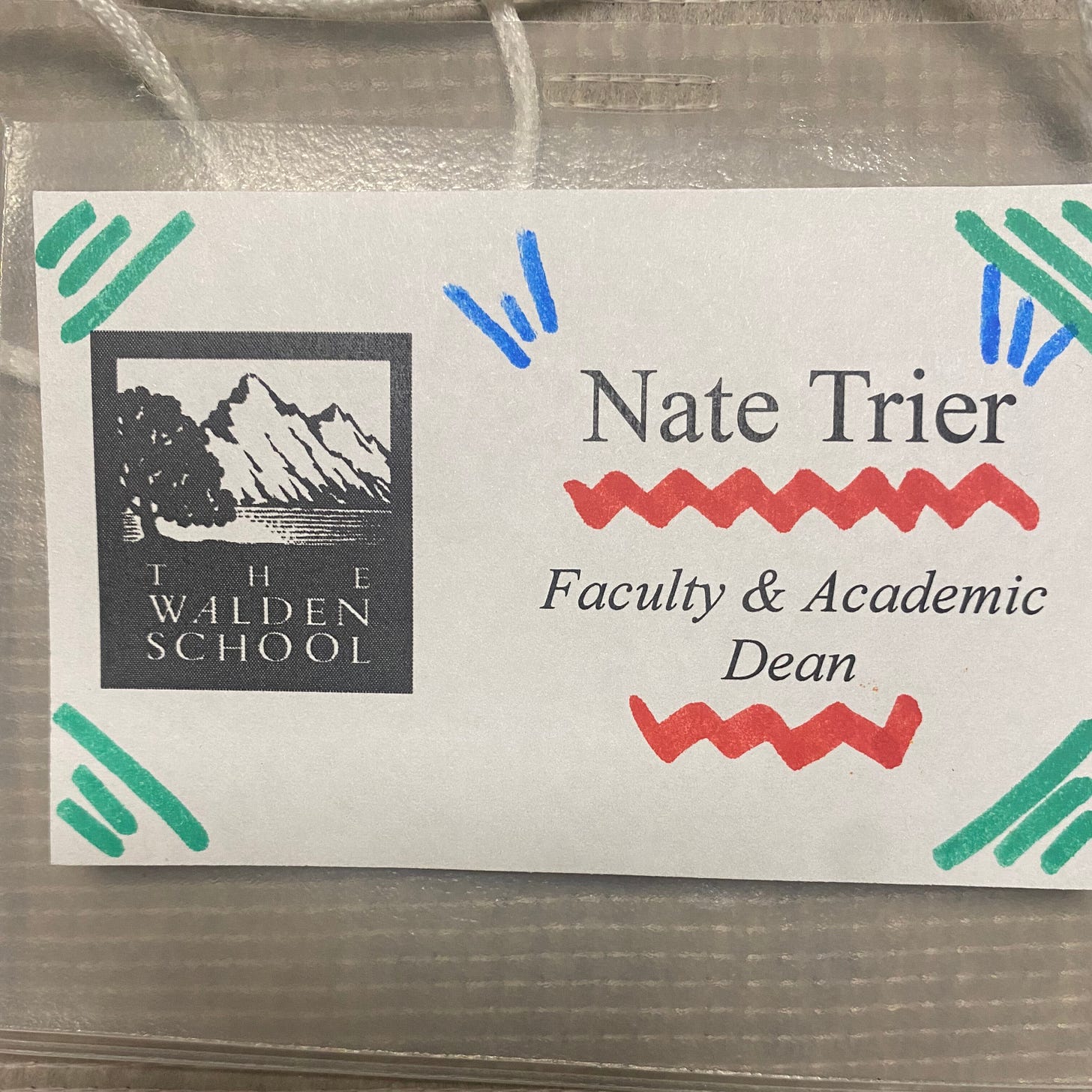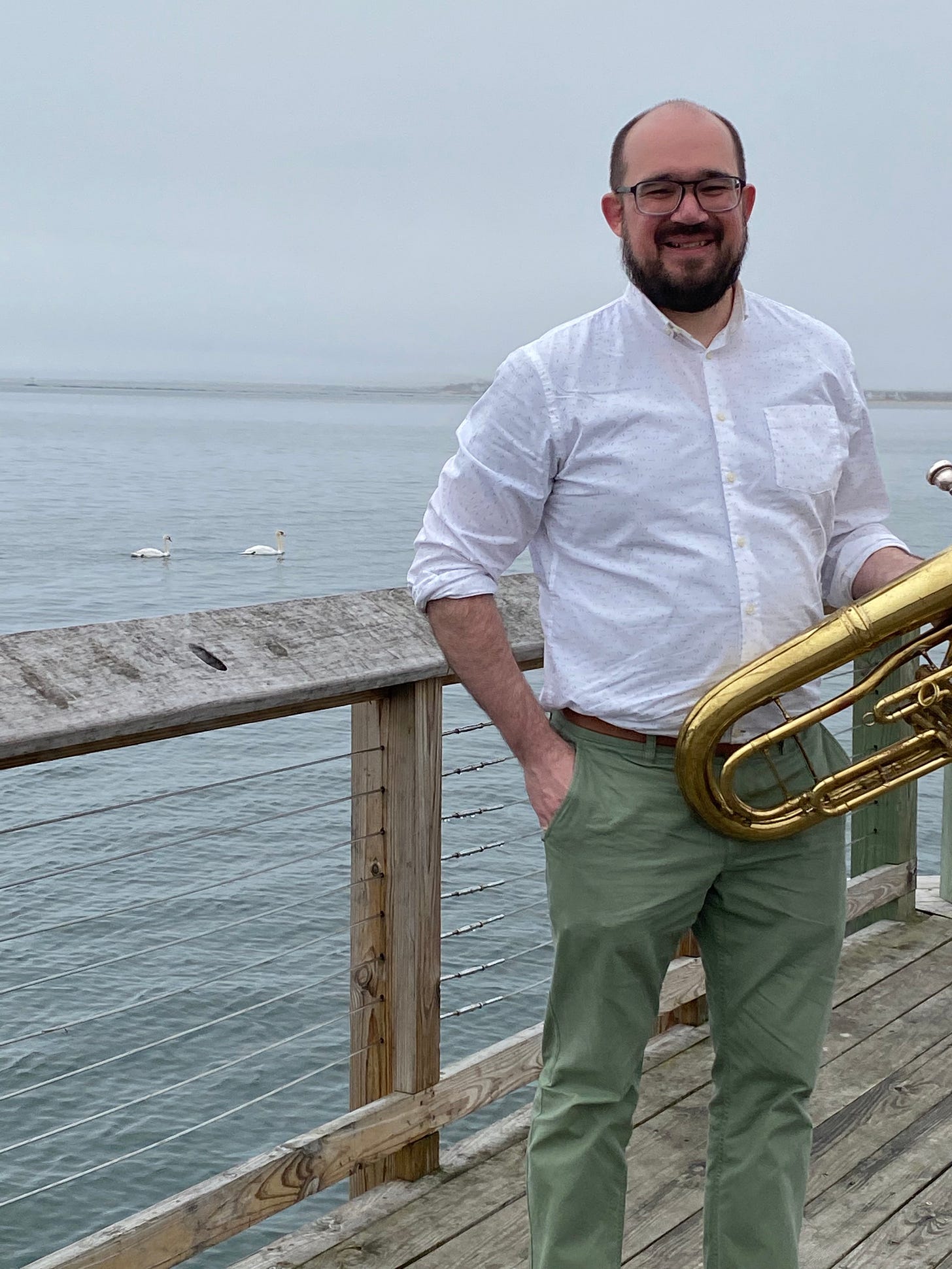"If You Want to Really Know Something, Teach It to Other People"
Or, How I Spent My Summer Vacation
Is it a little weird that I'm writing about my summer activities in the beginning of October? Sure! But, I've been grappling with how to encapsulate and summarize the whirlwind, intense, wonderful six weeks that is The Walden School Young Musicians Program. I've been a faculty member there for the last three summers, and this year I stepped into an administrative role as well. Every day is jam-packed with music-making activities, including classes on making music, music theory, learning folk songs and folk dances by rote, singing choir music composed anytime from the middle ages to last year, and debuting new student compositions. I’m a teacher there, but I’m also a learner!
Part of my job as a teacher is, perhaps ironically, adapting to new challenges and learnings things anew.
For example, this year, I was able debut three new student compositions on baritone horn, which was a great experience and one that I'm grateful for (the student work was awesome; my fellow performers were amazing). However, I have not played a ton of baritone in the context of chamber-music duos and trios, so I got to gain some new skills!
As another example, last summer I got to conduct an a cappella piece in the style of American Barbershop music; the conducting technique for that is very different from how I was trained to conduct. I wouldn't say I mastered the tradition in just five weeks, but it was a great experience (and, thanks to our choral director Kari Francis for her indefatigable knowledge and guidance).
Likewise, the Walden approach to music theory is very unique and requires me to relearn how I think about music theory and teaching. The Walden pedagogical sequence starts with students learning the overtone series and then improvising and composing using intervals (in most instructional sequences, intervallic composition is usually considered an advanced topic). Walden also teaches students to “rotate” through the modes and scales and cycle through chords, which quickly busts students out of the "major/minor scale" constraints that a lot of other theory instruction begin with.
I'm grateful for these chances to learn new things because I think it gets harder to get new educative experiences as you get older. You're expected to be an expert who has all the answers (or, conversely, someone who has been left behind by current trends).
But is that fair? I'm not sure. And, as anyone who receives a certain type of targeted ads and content can tell you, the best way to preserve your mental health as you get older is to keep challenging your brain to learn new things. I am happy to have a position that is regularly challenging and educational for me in addition to my students.
So, now I'm back. I grew and learned as a person. So what's next for Nate Trier?
Well, a summer at Walden always makes me want to practice for 3 hours a day and tackle my mountain of music theory books and transcribe everything I have ever heard. And I will!
But FIRST, I'll be releasing a two-song EP for Halloween! If you’re a Spotify user, you can click here to pre-save my upcoming Halloween Music, Lemon Halloween.
The transition back home made me think about the realities and very different experiences of making music in a community vs. in solitude, which will show up in my next Substack post.
What about you? What are you challenged to learn that keeps your mind sharp?





